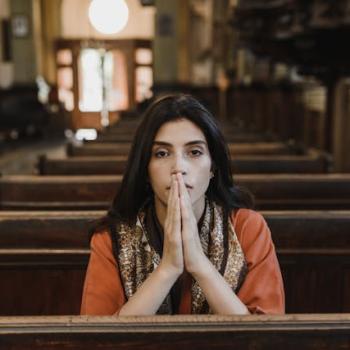The Presbyterian Church (U.S.A.) has expanded its definition of marriage to include a “commitment between two people,” recognizing gay marriage as Christian in the church constitution after decades of debate over same-sex relationships.
The redefinition was endorsed last year by the church General Assembly, or top legislative body, but required approval from a majority of the Louisville, Kentucky-based denomination’s 171 regional districts, or presbyteries. The critical 86th “yes” vote came Tuesday night from the Presbytery of the Palisades in New Jersey. . . .
After all regional bodies finish voting and top Presbyterian leaders officially accept the results, the change will take effect June 21. The denomination has nearly 1.8 million members and about 10,000 congregations and is now the largest Protestant group to authorize gay weddings churchwide.
Last year, Presbyterians allowed ministers to preside at gay weddings if local church leaders approved in the states where same-sex unions were legally recognized. The new wording for the church Book of Order extends that authorization to every congregation and reads, “Marriage involves a unique commitment between two people, traditionally a man and a woman, to love and support each other for the rest of their lives.”
The amendment includes a provision that no clergy would be compelled to preside at a gay marriage or host such a ceremony on church property. . . .
Although several Protestant denominations have taken significant steps toward recognizing same-sex relationships, only one other major Christian group has endorsed gay marriage churchwide.
In 2005, the 1.1 million-member United Church of Christ became the first major Protestant denomination to back same-sex marriage, urging its individual congregations to develop wedding policies that don’t discriminate against couples because of gender.
The Episcopal Church, which blazed a trail in 2003 by electing the first openly gay Anglican bishop, Gene Robinson, does not have a formal position on gay marriage, but allows bishops to decide whether their priests can officiate at the ceremonies. Episcopalians will take up gay marriage at a national meeting in June.
The Evangelical Lutheran Church in America, which eliminated barriers to gay ordination in 2009, takes a similar approach, allowing some discretion by clergy and congregations to officiate at same-sex ceremonies without formally recognizing same-sex marriage as a denomination.
The United Methodist Church, the second-largest Protestant denomination in the U.S., bars “self-avowed practicing homosexuals” from ordination and prohibits gay weddings. Many Methodist clergy have been performing gay marriages as a protest of church policy.











